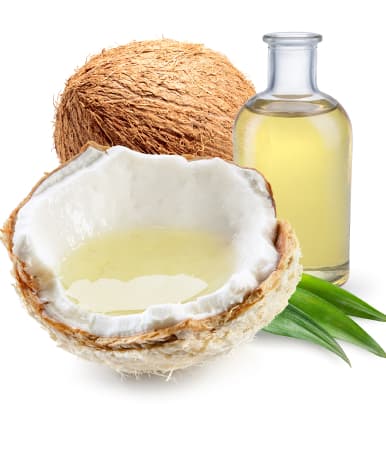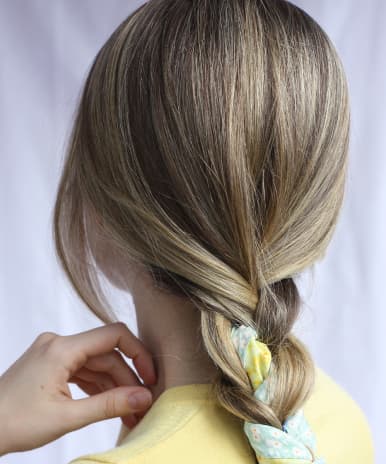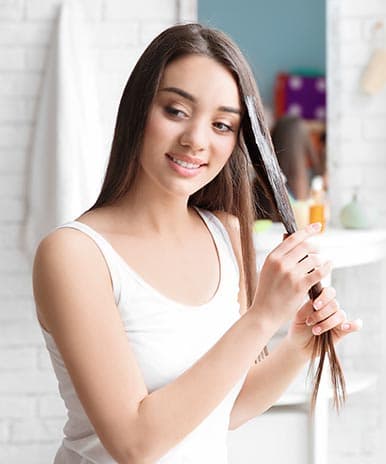According to Pinterest Predicts 2023, searches around scalp health have shot up massively in recent times. Crown care is set to be the hottest emerging beauty ritual this year and before you see it everywhere, here's our ultimate guide on root revival.
Scalp massage techniques

Hair oiling and scalp massages are a huge part of South Asian beauty culture. This non-negotiable weekend routine usually includes a mix of beneficial hair oils such as fresh pressed coconut, almond or even castor oil followed by a 30 minute long scalp massage meant to improve blood circulation. This strengthens the hair follicles, drives growth, helping with conditions such as alopecia and even increases strand thickness. To begin with, opt for a traditional scalp massage technique-apply light to medium pressure using your fingertips, moving around the scalp in small circles. Ideally, repeat this for 4-6 minutes, twice a day. You can also massage your head the same way while using essential oils, however limit this to twice a week at most so you're not risking over shampooing. You can also explore scalp massaging tools in the form of brushes or hand-held silicone massagers which do the same job with more ease.
Clean scalp & clean scalp build up

Just as you're advised to detox your body every few months, it is equally important to treat your scalp to a deep cleanse after exposure to dirt, sweat and pollutants. Small things first-make sure you're using a shampoo and conditioner suited to your hair type, preferably one that's silicone and sulfate free. Scalp build up can occur due to any number of reasons-incorrect hair products, oil, sweat, dirt and even dead skin cells. To prevent this, ensure you detangle regularly and break apart build up, use a scalp exfoliator and find a washing rhythm that's suited to your hair type (whether dry or oily). Routine care saves you from issues such as scalp flaking and itchiness.
Scalp treatment for dry scalp

When your scalp loses too much moisture, it becomes dry and starts flaking. This can be caused by harsh shampoos, extreme weather or underlying skin conditions and age. Preventative measures include using moisturising hair products, washing your hair less frequently and only rinsing with cool water. Depending on the severity of the issue, you may be advised medication, however if it is in a nascent stage, a few home remedies may help. The first? A coconut oil mask. Given its high fat content, it will pack in some much needed moisture for your scalp upon application. It also has anti-inflammatory properties which reduces symptoms such as itchiness. Second, use fresh aloe vera gel on your roots atleast twice a week for a moisturising and cooling effect. To give your hair some lustre as well, use Livon Anti Frizz Serum, which is suited to all textures, straight, wavy or curly, thus tackling dryness right from the root to the strand.
Natural hair mask for growth

If you're looking for a healthy and long mane, DIY hair masks are the most effective and affordable way to achieve this goal. Simple kitchen ingredients are super heroes when it comes to hair care, providing much needed moisture to your roots and addressing concerns such as hair loss, thinning, dullness and breakage. Our favourite is a hair mask made from 1 teaspoon of ground cinnamon and 2 tablespoons of fresh pressed coconut oil. The spice stimulates blood circulation, thus promoting hair growth, while the coconut extract which is rich in fatty acids helps restore moisture. There's plenty of anecdotal evidence about castor oil's magical ability to help with hair growth. Rich in fatty acids and Vitamin E, castor oil when mixed with carrier oils such as olive oil or almond oil addresses concerns such as breakage and dullness upon application to the scalp.



































